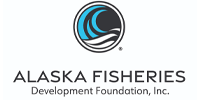We are in preparation for the 3rd Annual Surveillance Audit for Marine Stewardship Council’s certification of sustainability for the Pacific cod fishery in Alaska. One of the steps in preparation is collecting the pro rata shares from the participating primary processors and fishing groups that are supporting the certification. The cost has dropped substantially from previous years, with both a reduction in the amount charged by the certifier, Intertek Moody Marine, and the overhead cost by AFDF. We are looking at an overall cost of $50 K with $15 K of that as certifier charges and $35 K being AFDF overhead.
AFDF is currently putting together the Client Report for the 3rd ASA. In doing so, we are in need of the lost gear information that we have discussed in previous updates. The individual lost gear reporting forms for Pot and Longline gear, and the Lost Gear List for these gear types, have been sent out to various companies’ fleet managers and fishing groups, including the Bering Sea Pot Cod Cooperative and the Freezer Longline Coalition. The information from these forms is critical to having a successful site visit with the assessment team in mid-May. We are hoping to focus on the 2013 “A” season as the reference season for lost gear evaluation. We also need to contact some vessel skippers to gather additional information that allows us to evaluate the lost gear forms received. For example, a pot vessel reporting 2 lost pots on Trip 5 delivering at the end of a 5 day trip on January 28th; we need to know how many pots being fished on the trip and average soak time. If this vessel was fishing 100 pots, one could calculate a 2% pot loss; however, if the vessel fished 100 pots and turned them every 12 hours for 5 days, the lost gear percentage is actually two-tenths of 1 percent (.2%), a much less objectionable loss rate.
AFDF would like to thank fleet managers from Peter Pan Seafoods, Trident Seafoods and Icicle Seafoods for submitting some lost gear forms from 2012 “B” season, and hope they will submit current forms from 2013 “A” season as soon as possible. We would also like to thank Craig Lowenberg with the Bering Sea Pot Cod Cooperative and Chad See with the Freezer Longline Coalition for helping AFDF get the word out and helping us collect this information that is the key to continued certification.
The Client report needs to be completed and to the assessment team by May 1st, so we have the month of April to compile and analyze the lost gear information from the Pot and Longline fleets in both BSAI and GoA. Any vessel skipper can call me @ (907) 350-8860 and give me lost gear information by trip with dates, whenever they end a trip between now and late April.
We will be getting invoices out for pro rata shares this week and next. AFDF cannot take 6 months of staff time this year to collect the pro rata shares like last year. Any pro rata shares not received by May 15th will be assessed a surcharge of 10% of sector costs on top of the share.

